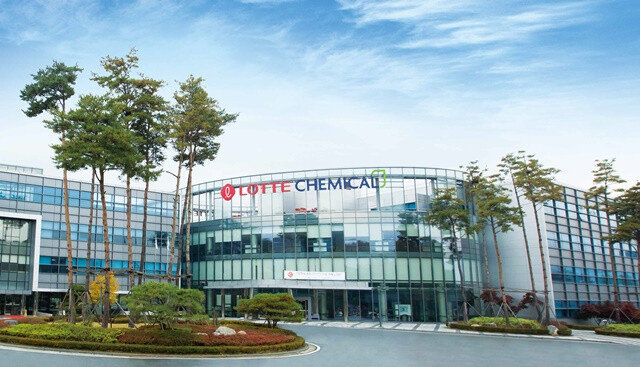
Seoul, South Korea – Lotte Chemical's stock price has been plummeting due to a combination of a downturn in the petrochemical industry and a significant increase in debt from large-scale investments. The company's recent default on a 2 trillion won corporate bond has exacerbated investor concerns. While the risk of a liquidity crisis is considered low, experts warn that the company needs to address its growing financial risks as the industry downturn is expected to persist.
On November 25th, Lotte Chemical's stock closed at 67,700 won, up 1.86% from the previous trading day. However, its market capitalization has fallen below the 3 trillion won mark following rumors of a liquidity crisis that surfaced on November 18th. Lotte Chemical's share price has plummeted by 29% this month alone, returning to levels last seen in 2009 during the global financial crisis.
The fact that the stock price has not recovered despite Lotte Group's denials indicates that market concerns persist. Institutional investors have been net sellers for six consecutive trading days since the crisis rumors began, offloading a total of 420 billion won worth of shares.
The company's deteriorating financial health is fueling these concerns. On November 21st, the Korea Securities Depository announced that an event of default (EOD) had occurred for Lotte Chemical. This was due to a breach of covenants in 89% of its 16th-series corporate bonds, totaling 2.045 trillion won. These bonds had a condition requiring the company to maintain an EBITDA (earnings before interest, taxes, depreciation, and amortization) of at least five times the average interest expense for three years before the principal repayment. However, the company's EBITDA was only 4.3 times the interest expense as of the third quarter, falling short of the requirement.
While an EOD event allows bondholders to declare a default, experts believe that the likelihood of such a declaration is low given that Lotte Chemical has sufficient cash reserves and is actively communicating with the market. However, the market remains concerned about the company's deteriorating financial situation. According to Korea Ratings, Lotte Chemical's EBITDA interest coverage ratio, which measures a company's ability to meet its interest payments, plummeted from 27.8 times in 2021 to 0.9 times in the third quarter. This indicates that the company was unable to cover its interest expenses with its operating earnings.
The company's profitability has been severely impacted by the downturn in the petrochemical industry, coupled with aggressive capacity expansions in China, leading to oversupply. Lotte Chemical has reported cumulative operating losses of over 1.6 trillion won since 2022, compared to over 1 trillion won in operating profit in 2021. Additionally, the company has incurred substantial financial burdens by investing over 5 trillion won in overseas plant construction and mergers and acquisitions to expand its capacity and diversify its business.
The concern is that this situation may be difficult to reverse. Jeon Yu-jin, a researcher at iM Securities, said, "With numerous new business investments planned amid a prolonged industry downturn and annual interest expenses of around 2 trillion won, the company's financial burden is expected to continue increasing." If EBITDA continues to decline, Lotte Chemical's credit rating, currently AA with a negative outlook, could be downgraded. Lotte Group plans to hold an investor relations (IR) session on November 26th to address these concerns.
[Copyright (c) Global Economic Times. All Rights Reserved.]




























